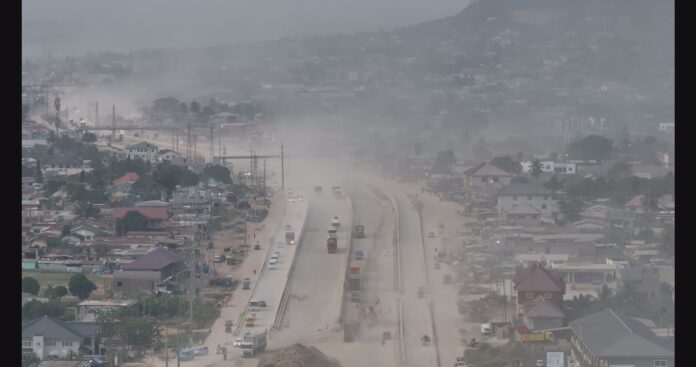The Ofankor-Pokuasi-Nsawam Highway was once a vital transportation artery for the local economy, but legal battles and government debt owed contractors have delayed the reconstruction by two years as surrounding communities face a range of problems.
Key among them is their health. Experts warn the delayed project has become a major health hazard for over 300,000 residents in the area.
Experts told reporter Prince Owusu Asiedu that it is contributing to a dramatic rise in a range of illnesses from asthma to heart disease and cancer.
Naomi Lokko has been selling rice and stew here along the Sapieman road on the Ofankor-Pokuasi road since 2003.
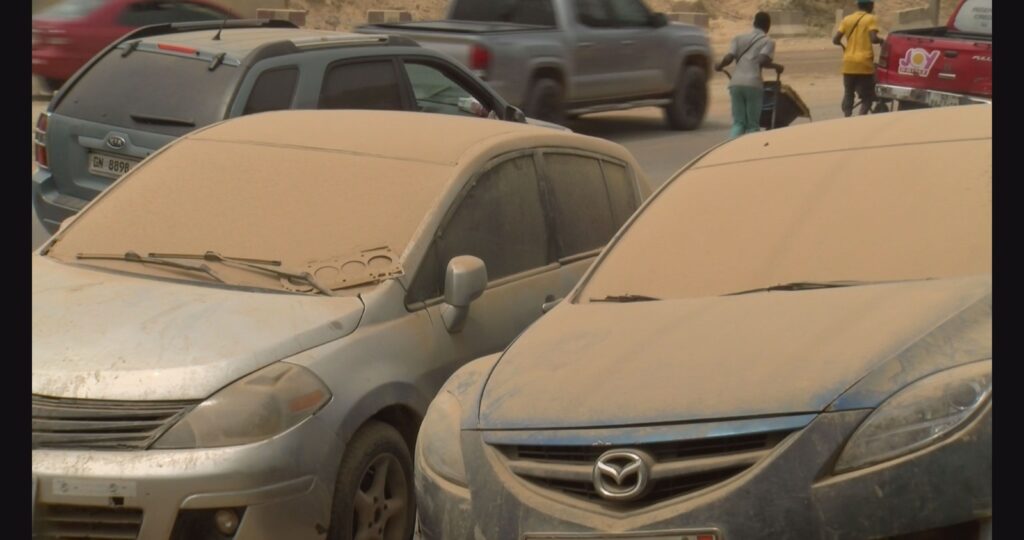
For years the 48-year-old has been exposed to thick dust from the busy road, often returning home covered in a layer of grime.
In July 2025, her persistent cough worsened, into severe chest pains, difficulty breathing, and a high fever. Doctors at the nearby Ghanaian-Germany Hospital diagnosed her with severe pneumonia.
“I thought I was going to lose my life. The dust is suffocating. I never knew it could be this bad,” she said.
Naomi says her health crisis has left her unable to work, with no savings to fall back on her casual laborer husband has taken on extra jobs to make ends meet. It’s barely enough to cover the cost of her treatment, let alone support their children.
Naomi fears for their future. “If I don’t sell, who will feed my children?”
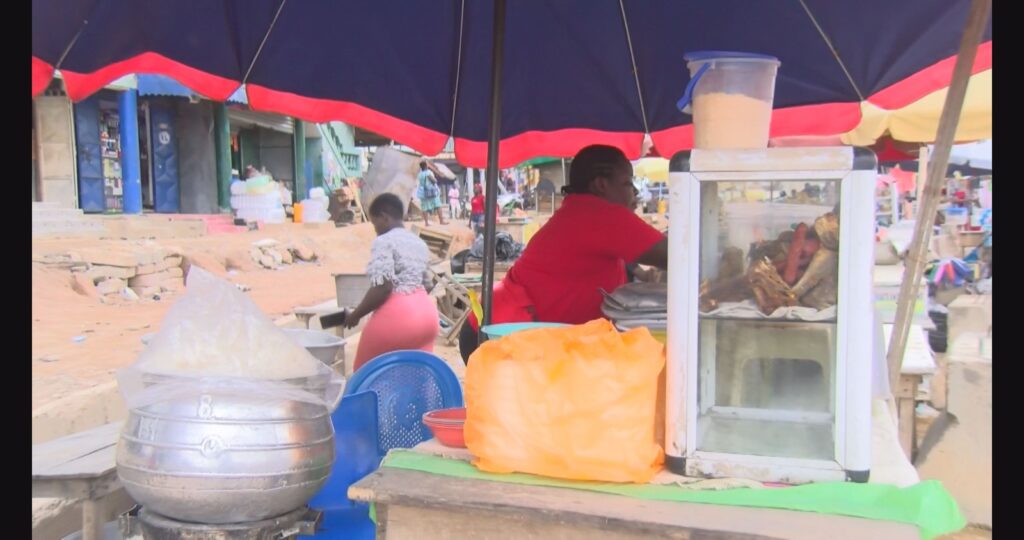
She’s considering returning to the dusty roadside, despite her doctor’s warnings.
Naomi is just one of the many residents suffering as the $350 million project delays.
Work on the road is finally picking up again. The Ghanaian owned contractor Maripoma had slowed work after the government fell behind on payments.
Officials say all arrears have been cleared, and the contractor is back on site under closer government supervision.
The project is now part of the “Big Push” initiative, with a completion deadline of June 2026 and a warning from the president that there can be no more delays.
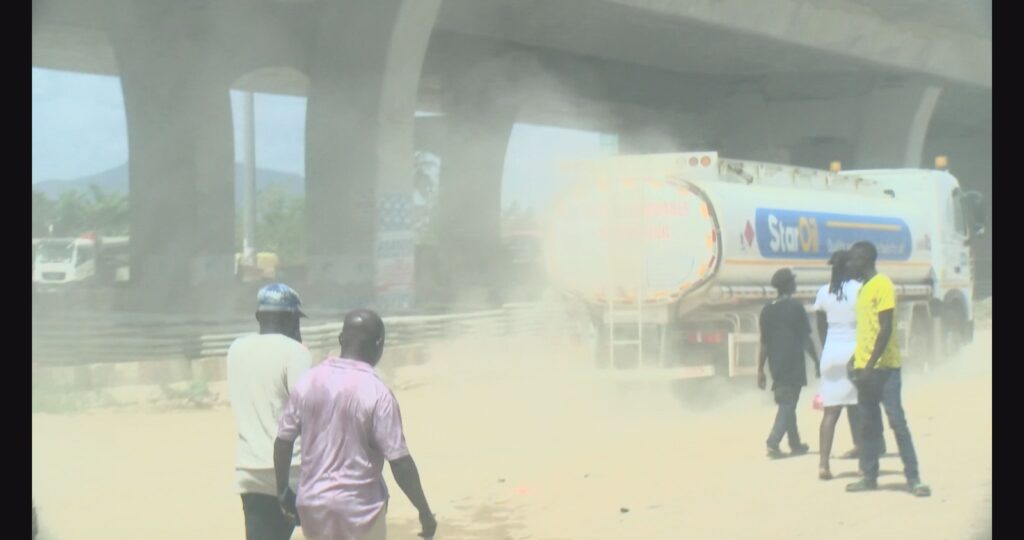
Medical experts are now sounding the alarm. The Ga West Municipal Hospital Pediatrician Dr. Tierenye Dono says air pollution related illnesses have risen dramatically in the area since the roadwork began.
“We’ve recorded a 70% increase in pneumonia, hypertension, and asthma cases in 2024 compared to 2023. The hospital has seen a significant surge in patients with respiratory problems,” he said.
Health experts say dust from unpaved roads can include a range of particles. Some can penetrate the lungs and respiratory system causing illnesses like asthma, bronchitis and pneumonia. Some can also get into the eyes impacting eyesight.
University of Ghana Public health expert Dr. Reginald Quansah says the most dangerous, known by their size – PM 2.5 – get into a victim’s blood causing illnesses including heart disease, stroke, infertility and cancer.
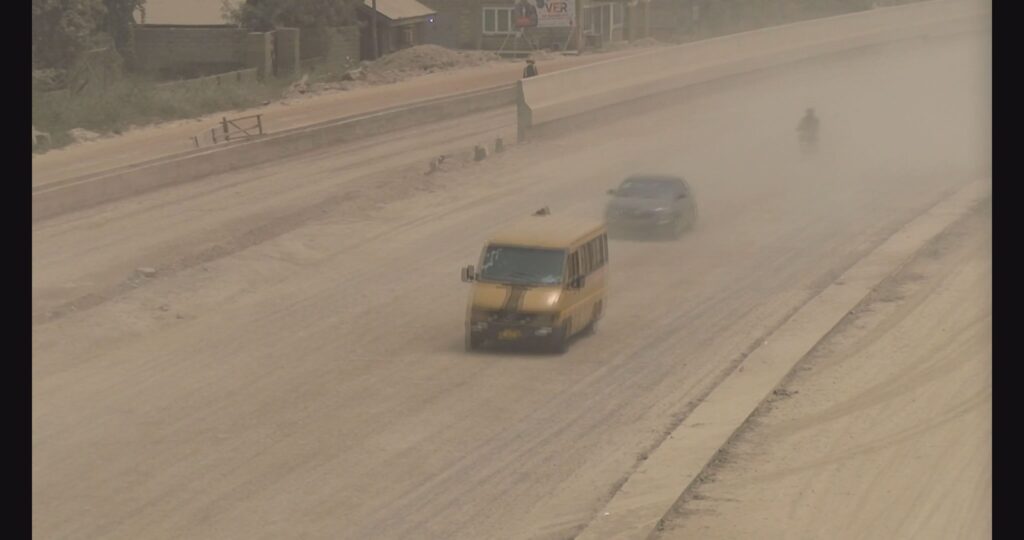
“Fine particles, known as PM2.5, can penetrate deep into your lungs, causing inflammation and triggering asthma attacks. These tiny particles can exacerbate respiratory problems and have serious health implications,” he explained.
Dorcas Effah Agyeiwaa, a public health nurse at the Amamorley Clinic, at Ablekuma in the Ga West Municipality noted, “Inhaling dust particles can lead to respiratory and
Cardiovascular diseases, including cancer and kidney damage when it enters the bloodstream. It’s Crucial that we take action to protect public health.”
All the doctors are urging the government to ensure that the project is fast-tracked but, in the meantime, they are urging the public to protect themselves by wearing nose masks.
Kwasi Boadi, a resident said he spends most of his days working in his small provision shop, surrounded by the thick dust kicked up by passing vehicles.
The dust is relentless, covering every surface in a fine layer that Kwasi breathes in with every breath.
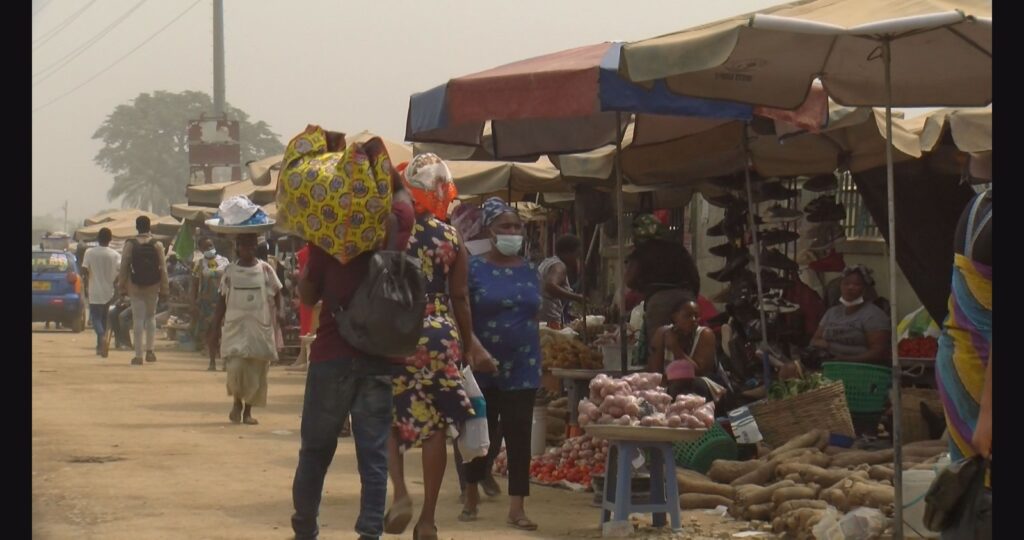
“The dust gets into my lungs, and it’s hard for me to breathe. My chest always feels tight, and I get constant coughs. I feel trapped since my livelihood depends on this shop, and I can’t afford to leave. Where would I go?” he asks. “This is my home, and I have to make a
living. I just wish the dust would settle,” he bemoaned.
Project Director with Maripoma Ing. Asare Awuku acknowledges the danger.
“It is our responsibility as contractors to sprinkle water on the dusty road every day, we have to water it in the morning, afternoon and evening, and we call it everyday maintenance, we have water tankers available, so we are on top of that.”
The Environment Protection Agency (EPA) has called on Maripoma to speed the project as fast as possible.
Deputy CEO of EPA, Prof. Michael Ayamga-Adongo has appealed to the contractor to prioritize public safety, stating a comprehensive review will be conducted to ensure strict adherence to regulations.
The road is just one of the many sources of air pollution plaguing residents. As Accra’s population grows rapidly experts say air pollution is rising to alarming levels.
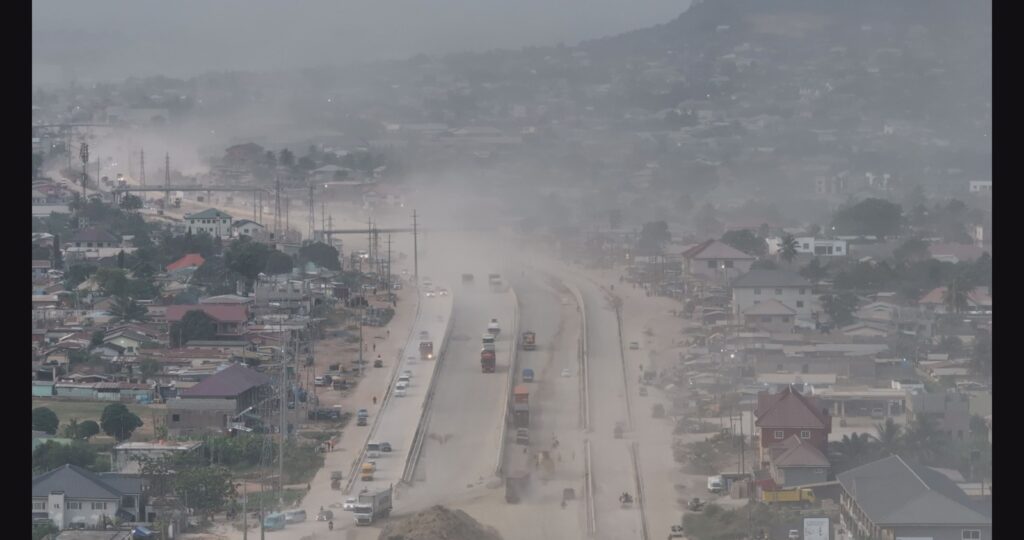
Vehicle emissions, burning of waste and cooking are the biggest contributors. Air pollution has been strongly linked to many chronic diseases that are rising in the city according to the Accra Metropolitan Assembly.
In the two years to 2023, hypertension was the fifth highest cause of death in Accra, claiming 200 lives.
Nearly 40,000 cases were reported. Asthma and cardiac cases also increased.
Dr. Abena Okoh is the Metropolitan Director of Health Services, Accra Metropolitan Assembly.
‘The statistics are clear: environmental pollution is taking a toll on the health of Accra’s residents. It’s time for action to address the root causes of these diseases and protect the health of our communities,” she said.
As the roadwork continues, residents of Ofankor-Pokuasi including Naomi and Kwasi are paying the price with their health.
Experts have warned residents here and in all heavily polluted areas of the country to do what they can to protect themselves: Seal their homes and vehicles, avoid burning waste, and above all, wear a nose mask.
This story was a collaboration with New Narratives with funding from the Clean Air Fund.

